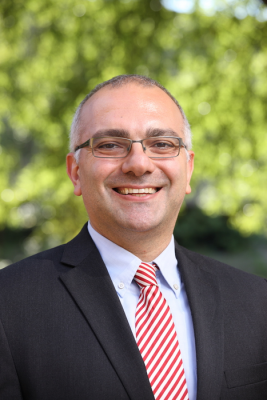
"Genetic studies done in more than 1 million people in the last 15 years identified hundreds of locations on our chromosomes that increase the risk of having a heart attack,” said senior researcher Mete Civelek, PhD, of the University of Virginia School of Medicine. "We now identified the genes that are responsible for this risk at these locations. We will be able to use these findings as new therapeutic targets." Image courtesy of UVA Health
February 6, 2023 — University of Virginia researchers and their collaborators have identified genes that play key roles in the development of coronary artery disease, the No. 1 cause of death worldwide.
UVA’s findings essentially pick culprits responsible for coronary artery disease (CAD) out of a far, far larger lineup of potential genetic suspects. That gives scientists promising targets as they work to develop new and better treatments.
“Genetic studies done in more than 1 million people in the last 15 years identified hundreds of locations on our chromosomes that increase the risk of having a heart attack,” said senior researcher Mete Civelek, PhD, of UVA’s Center for Public Health Genomics and the Department of Biomedical Engineering, a joint program of the School of Medicine and School of Engineering. “We now identified the genes that are responsible for this risk at these locations. We will be able to use these findings as new therapeutic targets.”
About Coronary Artery Disease
Coronary artery disease is the most common form of heart disease, affecting more than 20 million Americans. It’s estimated to be responsible for 1 in 4 deaths in the United States each year. The disease is caused by the buildup of fatty plaques in the walls of the arteries that supply blood to the heart, but the genetic (inherited) factors that contribute to its development remain murky.
To home in on genes important in the development of CAD, Civelek and his team examined cells collected from 151 previously healthy heart transplant donors from a variety of racial and ethnic backgrounds. This provided the scientists with a tremendous amount of information on gene activity in smooth muscle cells. These cells naturally line our arteries, but they also can serve as the foundation for the fatty plaques that build up inside those arteries.
Using the gene-activity data, the scientists worked backward to triangulate specific gene variations responsible for harmful changes in the smooth muscle cells. Understanding these changes sheds light on plaque formation, a process called atherosclerosis, and, ultimately, on the molecular mechanisms responsible for coronary artery disease. “Current drugs that doctors prescribe work to reduce risk factors for heart disease, such as cholesterol-lowering drugs,” Civelek said. “However, we need to identify drugs that target the disease where it develops. That is why it is important to find the genes responsible for the disease development in the arteries because that is where the plaques form.”
The new research provides many important insights into coronary artery disease. For example, the researchers found notable differences in gene activity between males and females in smooth muscle cells. They also identified important differences in smooth muscle cells that were multiplying, or “proliferating,” and those that were not.
To help his fellow scientists capitalize on the discoveries, Civelek has created a free, user-friendly website that lets heart researchers review and analyze his team’s important new data. The website can be found at http://civeleklab.cphg.virginia.edu.
“We expect that our findings will provide a rich catalog of genes for the cardiovascular community to study in years to come,” Civelek said. “And, of course, we hope some of these genes will be targets of a new class of drugs that target the plaque development in the arteries to the benefit of millions of patients.”
For more information: http://civeleklab.cphg.virginia.edu
Related content:
VIDEO: Managing Acute Coronary Syndromes in Women
VIDEO: Precision Cardiovascular Medicine: The Next Frontier in Patient Care and Innovation
VIDEO: Unique Features of Coronary Artery Disease in Women
Treatment for Heart Attacks Improving but Gaps in Access Persist, New Study Shows
Closing the Gap in Healthcare by Addressing Gender Bias
Diagnostic Differences in Women’s Heart Health
VIDEO: Differences in Cardiac Complications and Presentation Between Men and Women — Interview with Cindy Grines, M.D.
DAIC's Women's Cardiovascular Health Channel
VIDEO: How to Build a Successful Women’s Heart Center — Interview with Malissa Wood, M.D.
VIDEO: Creating a Cardio-Obstetrics Team — Doreen DeFaria Yeh, M.D.
Related Content on New Technology and Ideas to Address Health Disparities:
VIDEO: New Ideas in Addressing Cardiovascular Disease Disparities — Clyde Yancy, M.D
VIDEO: How Smartphones May Revolutionize Healthcare in the Developing World —Interview with Jacques Kpodonu, M.D.
VIDEO: Reducing Hypertension Among African-Americans — Interview with Kim Allan Williams, Sr., M.D.


 February 03, 2026
February 03, 2026 









